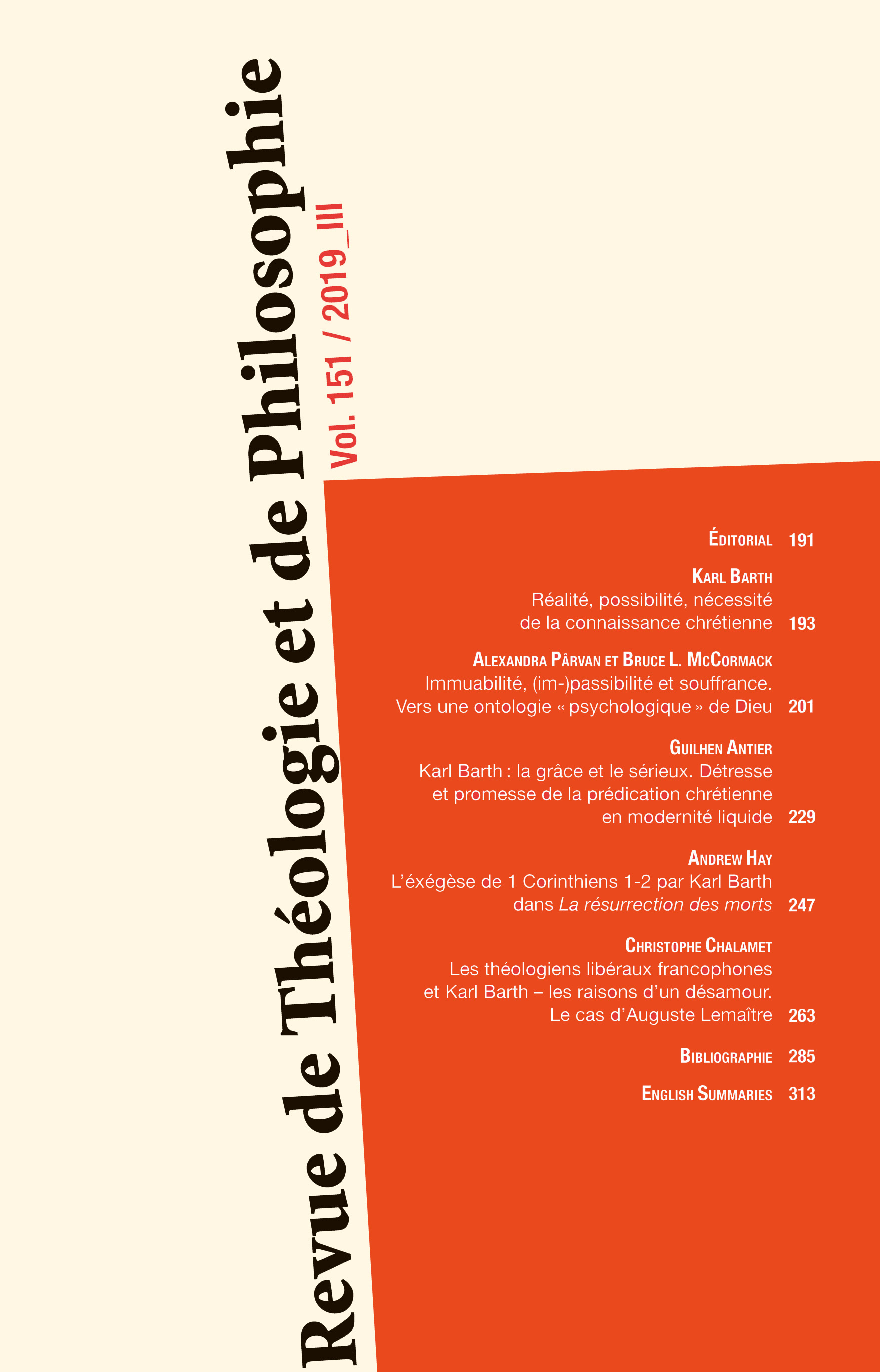Karl Barth’s exegesis of 1 Corinthians 1-2 in Die Auferstehung der Toten
Abstract
Investigating Karl Barth’s exegesis of 1 Corinthians 1-2 in Die Auferstehung der Toten (1923) is important both for historical aims (it illuminates the period between his Römerbrief and Göttingen lectures, and it is a precursor to select sections of his Kirchliche Dogmatik) and for theological aims: the notion that God remains the subject of his revelation was indeed a paradigmatic point of Barth’s theology. This paper attends historical concerns about the development of Barth’s thought by pinpointing his work on 1 Corinthians in contemporary theological dialogues. Barth’s reading of 1 Corinthians 1-2 continues to be exegetically stimulating today because he took the historical Paul seriously. To be precise, he recognized the implications of Paul’s argument for the “foolishness” and “weakness” of God as indicating God’s right to have the last word: the word of the cross “from God” is God’s wisdom and God’s strength. Barth’s theological exegesis thus allowed him to identify Paul the theologian and safeguard him against the historicizing inclinations of the New Testament scholars of his era.
How to Cite
More Citation Formats
Issue
